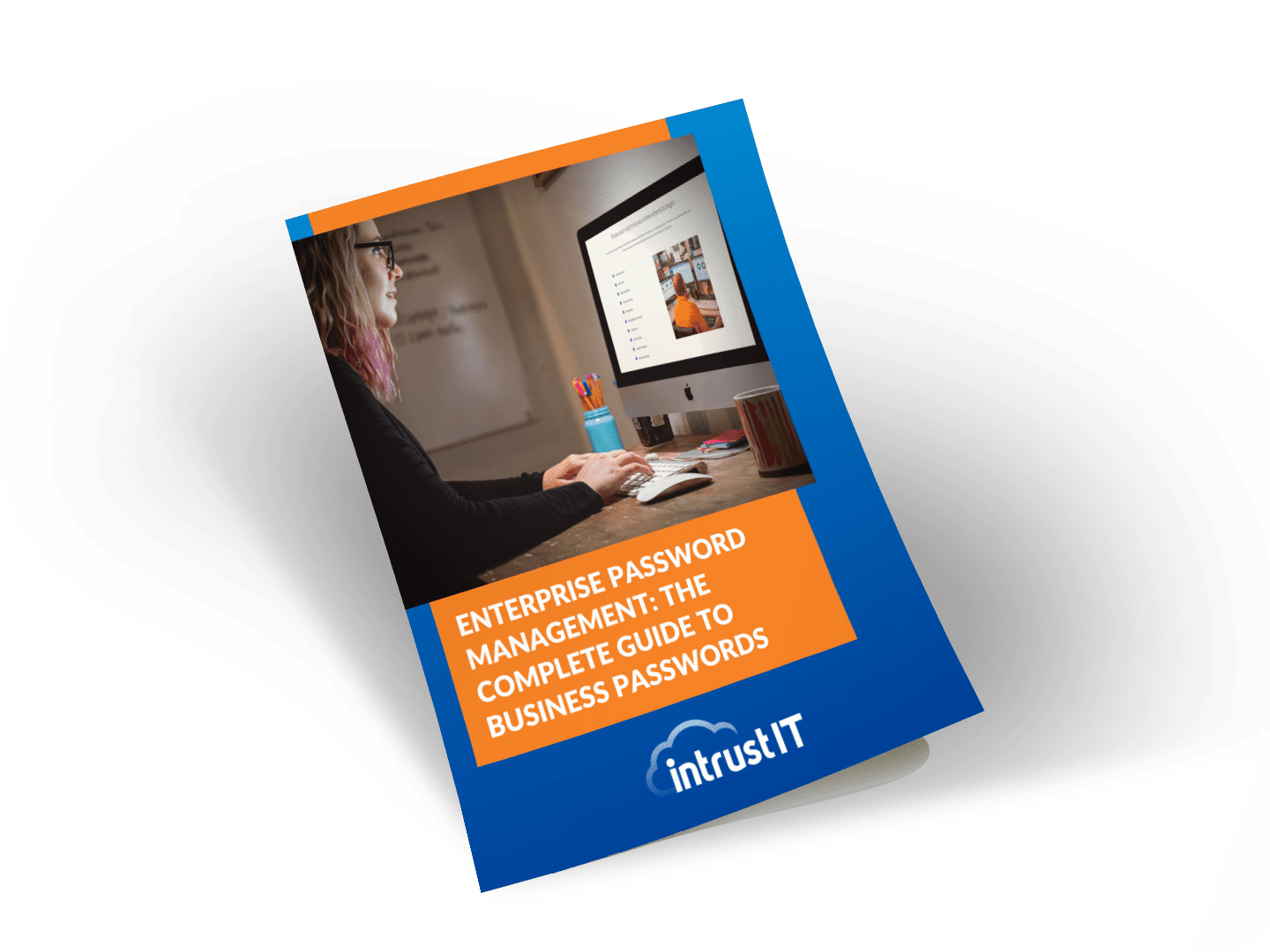Pig-Butchering Scams: What They Are and How to Stay Safe

At Intrust IT, we understand that it may feel like the specter of cybersecurity is always breathing down your neck. But you can’t afford to be distracted from your company’s goals and risk a data breach or downtime. As we enter the holiday season, the threat of scams increases. Don’t let yourself or your people fall victim to cyber wolves in sheep’s clothing. Or in this case, cyber pigs. That’s right, the latest scam is “pig butchering,” and it’s increasing at a rapid pace.
What Is Pig Butchering?
“Pig butchering” refers to a type of online scam where fraudsters gradually gain a victim’s trust (often through fake romantic relationships or seemingly innocent interactions), before manipulating them into investing large sums of money in fake investment schemes.
Essentially, this is the process of “fattening up” the victim like a pig before slaughtering them by taking all their money. The term is used because it describes the process of building trust over time before taking everything from the victim.
One of the reasons we’re seeing an increase in pig-butchering scams is that many times, the holiday season makes people more susceptible to new relationships and heightened emotions.
There are several viral instances of strangers getting together to celebrate the holidays. For instance, in 2016, an accidental text from a grandmother to a stranger about Thanksgiving dinner kicked off what is now an eight-year relationship. Stories like this tend to fill people with hope and lead them to believe that maybe they could also get a random text from a stranger that turns out to be a life-changing relationship.
Unfortunately, for too many people, that random text turns out to be a cyber scam that alters their lives irrevocably – and not in a good way.
What Are Some Examples of Pig-Butchering Scams?
At one time or another, you’ve probably received a random text message from an unfamiliar number that seems to be for someone else:
- “Hi! Is this Lisa? I’m confirming our meeting for tomorrow.”
- “Hey, I’m so sorry I missed your message earlier. Are we still on for coffee?”
- “Oops, I might have texted the wrong number. But since we’re here, nice to meet you!”
They could also appear in the form of casual conversation starters:
- “Hi! I saw your profile and thought you seemed interesting. Mind if we connect?”
- “Hey there! I just moved to your area and am looking to meet new people.”
- “Hello! I noticed we’re in the same online group — just wanted to say hi.”
In most cases, these are the initial messages of this deceptive and devastating scheme. Like the provided examples, most victims of pig-butchering scams are roped in through emotional manipulation and carefully constructed deceptions.
Here’s a breakdown of how these scams typically begin and escalate:
1. Approaching the Victim
Scammers often make initial contact through texting, social platforms, dating apps or messaging apps like WhatsApp or LinkedIn. They might pretend to accidentally message you or comment on your social media posts. These openings are crafted to appear casual and non-threatening.
2. Building Trust
Once contact is established, the scammer starts cultivating a relationship. They may pose as a romantic interest, a professional with exciting investment opportunities or a long-lost acquaintance. They often work hard to gain your trust by:
- Chatting regularly over several weeks or months.
- Sharing fabricated personal stories or struggles to appear genuine.
- Expressing emotions like love, empathy or professional camaraderie.
3. Setting the Trap
After building trust, the scammer introduces the core of their scheme. For example:
- Investment opportunities: They may claim to have insider knowledge about cryptocurrencies, stocks or other investments.
- Urgent financial help: They might feign a crisis, asking for a “loan” they promise to repay.
They often show fake proof of their own “success,” such as doctored screenshots of high returns on investments to convince the victim to comply.
4. The “Fattening” Phase
Scammers encourage victims to make an initial, small investment or provide minor assistance. When this seems to yield positive results (like a fake return on investment), victims are emboldened to contribute more. Over time, victims may pour their savings into these scams, believing they’ve found a secure or lucrative opportunity.
5. The Final Blow
Once the scammer has extracted as much money or information as possible, they cut off all contact. Victims are left with nothing, often realizing too late that the relationship was built on lies.
Why Do People Fall for Pig-Butchering Scams?
Pig-butchering scams succeed because they exploit two powerful human traits: trust and hope. Victims believe the person they’re talking to genuinely cares or has their best interests at heart. Scammers are skilled at creating scenarios that feel realistic and emotionally engaging, which can override skepticism.
How Can You Avoid Becoming a Victim?
Staying safe from pig-butchering scams requires vigilance, skepticism and awareness of red flags. Here are a few practical steps you can take to protect yourself:
- Be skeptical of unsolicited contact: If someone messages you out of the blue, especially on dating apps or social media, question their intentions. Verify their identity by searching for their name, profile pictures or stories online. Scammers often reuse stolen photos or details.
- Take it slow: Scammers rely on urgency to push you into decisions. Whether it’s a romantic connection or an investment opportunity, take your time before committing to anything. Be wary if someone you barely know starts sharing deep personal feelings or pressing for financial discussions.
- Research investment opportunities: Never invest in anything you don’t fully understand. If someone promises high returns with minimal risk, it’s likely a scam. Scammers often create fake websites or apps that mimic real investment tools; verify before you click. Consult a financial advisor or trusted expert before making financial decisions.
- Watch for common red flags: Be alert if someone refuses to meet in person or insists on keeping the relationship online, asks for money or cryptocurrency, or claims to have insider knowledge about investments or financial opportunities. Don’t fall for any unrealistic success stories or a false sense of urgency prompting you to act immediately.
- Protect your financial information: Never share personal financial details, like your bank account, credit card number or cryptocurrency wallet information. Use two-factor authentication for all financial accounts to prevent unauthorized access.
- Trust your instincts: If something feels off about a person’s story or behavior, listen to your gut. Scammers are skilled manipulators, but they often slip up with inconsistencies or overly polished narratives.
5 Steps to Take If You’ve Been Targeted
If you suspect you’re being scammed or have already fallen victim, here’s what you should do:
- Stop contact immediately!
- Report the incident to the platform (dating app or social media site) and file a report with the Federal Trade Commission (FTC) here.
- Contact your bank or financial institution if you’ve sent money or a form of payment to see if transactions can be reversed.
- Alert authorities if significant financial loss has occurred and contact local law enforcement.
- Warn others: Sharing your story can help raise awareness and prevent others from falling victim.
Be Cyber-Smart
Pig-butchering scams are an unfortunate reminder that online interactions can be risky. By recognizing the warning signs, staying skeptical of unsolicited offers and prioritizing your financial security, you can protect yourself from becoming a victim.
At Intrust IT, your safety and the safety of your business are our top priorities. We understand that cyber threats are intimidating and seem to be everywhere. Contact us to learn more ways you can protect your business from cyber threats.NOTE: For more information on pig butchering and what you can do to prevent it, watch this in-depth video on YouTube: https://www.youtube.com/watch?v=pLPpl2ISKTg
Share this Blog

Is Your Name or Birthday a Part of Your Password?
If so, you’re a part of the 59 percent of people who don’t follow proper password hygiene. More than 70 percent of passwords are used for more than one system, meaning if cybercriminals crack one, they can access a lot more accounts.
Our free Enterprise Password Management Guide will give you the best password hygiene practices to help you secure your computer and your business.
Download the Guide
Explore the Latest Trends in IT

Edge vs Chrome Security: Which Is the Best Browser for Your Business?

Unlocking Security: The Power of Password Managers and Passkeys for Business Professionals

Intrust IT Acquires Commercial IT Support Division of Entegrity Consulting Group




